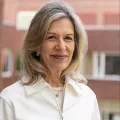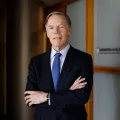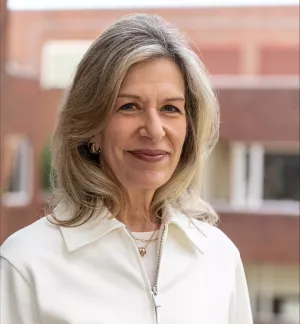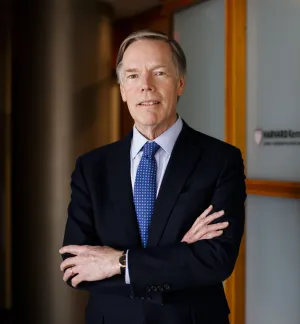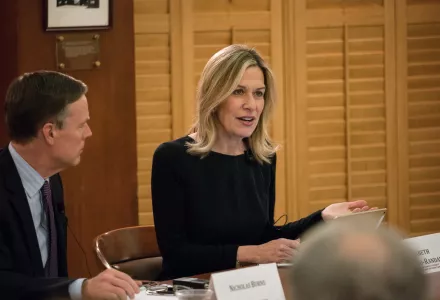
“Energy is an instrument of our diplomacy,” Dr. Elizabeth Sherwood-Randall, Fall 2017 Fisher Family Fellow noted at the opening her conversation with Faculty Director, Nicholas Burns on November 27, 2017. In the 1980s, the US pursued diplomatic means to get and keep access to oil from Arab Gulf states. In the 1990s, diplomacy was instrumental in bolstering the newly independent Central Asian states for energy resources, and to decrease dependence on the Gulf. “Today,” she described, “it’s very different — it is more sophisticated and 'multidimensional'.”
Under Sherwood-Randall’s leadership as Deputy Secretary for the U.S. Department of Energy - a post she left January 2017 - the United States had pursued three specific energy diplomacy goals that leveraged America's unique capacity for innovation in science and technology:
- Open and make more efficient energy markets so that resource dependence cannot be used as a weapon
- Increase resource development to reduce or capture carbon emissions
- Ensure effective management of civil nuclear technology around the world.
The energy diplomats in her department did much more than just “back-room deals” in pursuit of these goals, she said. They ran energy dialogues bilaterally and trilaterally and worked not only with the UN Security Council's Permanent members but with other subgroupings. They created a new Clean Energy Ministerial in 2009 to support knowledge exchanges across governments on clean energy technologies. With the White House, they launched the Nuclear Security Summit in 2010 aimed at preventing nuclear terrorism globally. In addition, her colleagues had developed a clean energy research center for U.S. and China researchers to work together on carbon capture projects among others. Perhaps the most demonstrable of the critical role that energy diplomats could play was as technical experts at on the Iran nuclear deal negotiations. That experience, she noted, had been exactly as chronicled in Harvard Kennedy School Professor Meghan O’Sullivan’s new book Windfall: How New Energy Abundance Upends Global Politics and Strengthens America's Power. “She wrote about what I lived.”
These initiatives and international exchanges were possible because of “constant tending, constant gardening” that built relationships between the U.S. Department of Energy and its international counterparts. Also, energy was seen as and used as a tool of the U.S. government in Sherwood-Randall’s tenure to be “organized, orchestrated, and prioritized alongside other objectives of the U.S. government.” The U.S. opening of diplomatic relations with Cuba, for example, highlighted future energy opportunities for Cuba.
In contrast, Sherwood-Randall described the present U.S. administration's prioritization of international political objectives as the U.S. abdicating critical components of its international role. She warned: “It is likely that countries that do not share [U.S] values will step in to fill the gap [left by American disengagement internationally]. We are ceding this terrain, not seeding it as we should be. I believe practitioners and experts like those at the Kennedy School need to speak out.”

